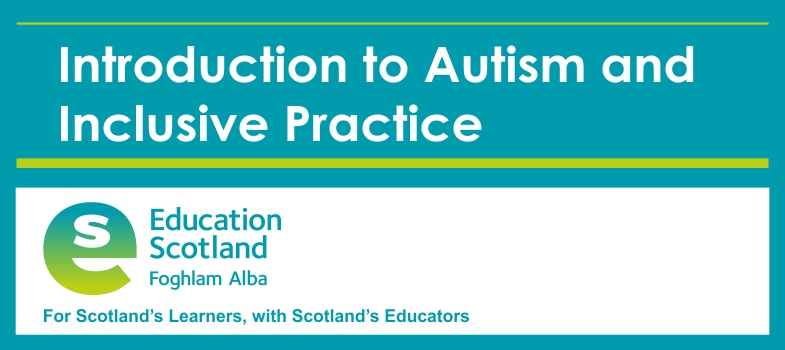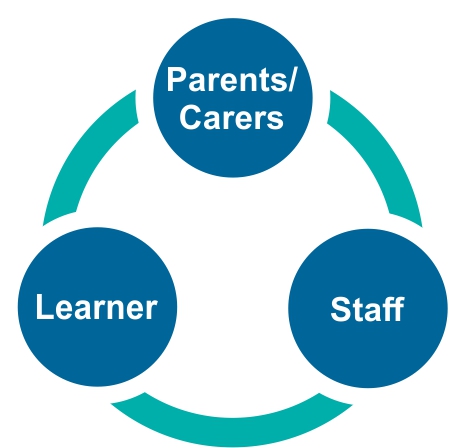5.1 Effective communication and collaborative partnerships
Each learner and their family are unique and supporting the development of positive relationships between practitioners and the family is critically important to provide effective support. These relationships are interconnected as highlighted in Figure 16. Parents, carers and learners each have different experiences of the journey through the diagnostic pathway, and reactions to diagnosis vary from distress and disbelief to relief and positive feelings that they now better understand how autism affects them and their family.
Effective communication, respect and collaborative partnership working between schools and families are key requirements. They are essential in supporting appropriate and effective learning and teaching. Practitioners must recognise and sensitively respect the experiences of autistic learners and their families who will naturally have queries and concerns during their educational journey. At all times, good communication will keep parents and staff informed in a two-way exchange to support their unique autistic child/learner.
A positive partnership, with mutual respect between the teacher/practitioner and parent/carer, is essential to achieve progression in the autistic learner’s life and learning. It is important for everyone in the partnership to recognise that social and emotional development and skills for resilience in life are equally as important as academic learning.
Building an effective partnership with families to support their autistic child through their educational journey and helping them prepare for post-school settings is required by all practitioners and local authority education staff. This is required at both the individual level and the wider level. For example:
- School management and staff should be aware of the autistic learners in their community.
- The local authority should work proactively with local autism networks and support groups and ensure information on additional support within their region is easily accessible. It is helpful to include information on the autism network support group and should include support services for learners, families and practitioners funded by the Scottish Government. For example:
- Enquire [Tip: hold Ctrl and click a link to open it in a new tab. (Hide tip)] – Independent and impartial advice on additional support needs.
- Let's Talk ASN – An advocacy and legal representation service.
- My Rights, My Say. – Children's service which provides independent advice and information, advocacy support and legal representation.
- Further details of services can be found on the Toolbox and in Section 9. Helpful Signposting and Information.
5 Supporting learners and families

